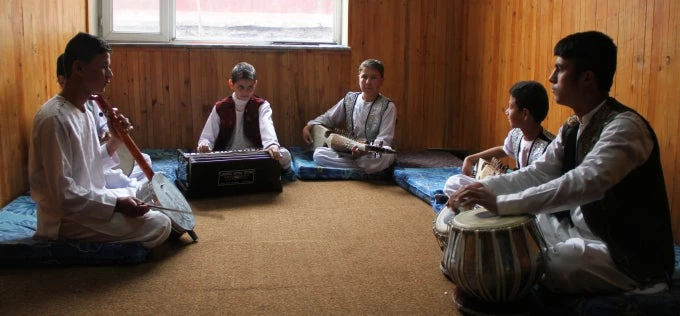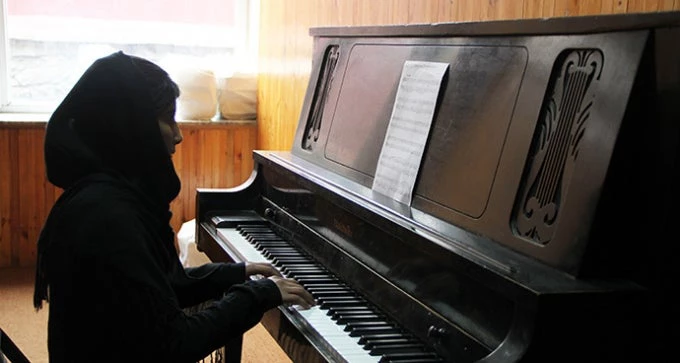Ahmad Sarmast may owe his life to a fumble with his cellphone. He bent down in his seat to pick up his mobile just as a suicide bomber detonated his charge behind him at a music and theatre performance at the Institut Français d’Afghanistan in Kabul.
The founder and director of the Afghanistan National Institute of Music survived the December blast that killed one and injured more than 10. Dr. Sarmast suffered perforated ear drums and shrapnel in the back of his head. But the experience has not deterred him from his ambition of reviving and rebuilding Afghan musical traditions through establishing and leading the country's first dedicated music school.
“Music represents the right to self-expression of all the Afghan people,” he told me during a tour of the modest building in a suburb of Kabul where ANIM is housed.
The institute’s young musicians, many of them former street vendors or orphans, have toured the world to showcase Afghan music and present a more positive face of the war-torn country. An ensemble played at the World Bank in 2013 and went on to perform amid great acclaim at the Kennedy Center and Carnegie Hall in New York.
Dr. Sarmast’s aim is to make the school with its 200 students – nearly 80 of them girls -- self-sustainable. Recently, as part of its sustainability initiatives, several top graduates of ANIM have been employed as Junior Faculty and are now working side by side with ANIM's local and international faculty to improve their skills and develop the capacity to one day lead the school. An ANIM graduate has also taken over as conductor of the Afghan Youth Orchestra and replaced the American who previously waved the baton.
The institute has big ambitions. It plans to open branches in the Afghan cities of Herat, Mazar-e Sharif and Jalalabad. The construction of a state-of-the art concert hall and girls' residence hall is also underway. While ANIM provides tuition-free education to all full-time students, a plan is in the making to open up an "Evening Division" where members of the community can come after school hours to learn music, use the facilities, and rent instruments. And Dr. Sarmast wants music to become part of the curriculum in Afghan schools.
Having lived in exile and under constant threat, Dr. Sarmast is well aware that the advances made by his music institute could be quickly reversed in the volatile atmosphere of present-day Afghanistan. Aside from hostility to music, there is enmity towards the opportunities the school gives to girls and how it educates them alongside boys.
“There are still elements in the Afghan society who are against women,” Dr. Sarmast said. “Even politicians who have shaved their beards and now wear a tie might make problems for music. But they are not the Afghan people.”
As a manager, Dr. Sarmast believes in leading by example. When I visited him, he had just finished leading his staff in a cleaning of the toilets in the institute as they prepared the building for the start of the new term.
A fan of jazz and western classical music, Dr. Sarmast has one piece of music that he regularly turns to in difficult times.
“When I’m stressed my only source of inspiration is Beethoven’s 5th Symphony. It gives me a lot of energy and the reason never to give up.”




Join the Conversation